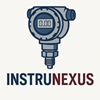Foundation Fieldbus Simplified: 20 Must-Know Q&As for Instrumentation Professionals
Foundation Fieldbus FAQ Foundation Fieldbus A comprehensive FAQ guide covering the core concepts of the Foundation Fieldbus communication protocol. 1. What is Foundation Fieldbus? Foundation Fieldbus is a digital, bi-directional communication protocol used in process automation. It replaces traditional 4–20 mA signals with a digital signal over a single pair of wires, enabling rich communication […]
30 Most Common Interview Questions with Answers
Q: What is a hazardous area?A: A hazardous area is a location where flammable gases, vapors, or dust may exist in sufficient quantities to produce explosive or ignitable mixtures. Q: What are the main types of hazardous materials considered?A: Gases/vapors and combustible dusts. Q: What are the different methods of hazardous area classification?A: IEC/ATEX (Zone […]
Positive Displacement Flow Meter: Working Principle, Types, and Applications Explained
1. Introduction Positive Displacement (PD) flow meters are among the most accurate types of flow measurement instruments available in the industry. Unlike other flow meters that infer flow rate based on velocity or differential pressure, PD meters measure the actual volume of the fluid passing through the meter. They operate by trapping fixed volumes of […]
Radar Level Transmitter Working Principle Explained: A Complete Guide
Interactive Guide to Radar Level Measurement Radar Level Guide Principles Technology Modulation Application Installation Full Report An Interactive Guide to Radar Level Measurement Explore the principles, technologies, and applications of modern radar level transmitters. This guide translates complex technical data into an interactive experience to help you understand and select the right solution. Core Principles […]
Understanding Displacer Level Transmitters: Working Principle and Industry Use Cases
Understanding Displacer Level Transmitters Displacer Level Transmitters Principle Anatomy Applications Implementation Comparison Conclusion A Deep Dive into Displacer Technology Explore the foundational principles, mechanical designs, industrial applications, and lifecycle management of one of process control’s most reliable level measurement technologies. This interactive guide translates complex engineering concepts into an easy-to-understand format. The Principle of Buoyancy […]
RTD Working Principle Explained: Fundamentals, Construction & Applications
The Ultimate Guide to RTD Sensors RTD Working Principle Explained An interactive and comprehensive guide to Resistance Temperature Detectors: from fundamentals to real-world applications. 1. What is an RTD? RTD stands for Resistance Temperature Detector. It’s a high-precision sensor that measures temperature by correlating the electrical resistance of its core element with temperature. RTDs are […]
Understanding Thermocouples: Working Principle, Cold Junction Compensation, and Types
Understanding Thermocouples: An Interactive Guide Understanding Thermocouples An interactive guide to their working principle, types, and applications. What is a Thermocouple? Temperature is one of the most commonly measured physical parameters in various industrial, scientific, and domestic applications. A thermocouple is a simple, durable, and versatile sensor used to measure temperature. It operates on a […]
Instrumentation Networks – 100 Most Common Interview Questions with Answers
Instrumentation Networks (IT/OT) – 100 Common Interview Questions Instrumentation Networks (IT/OT) 100 Most Common Interview Questions & Answers © 2025 Instrunexus. All Rights Reserved.
Instrument Calibration – 20 Most Common Interview Questions with Answers
Instrument Calibration – 20 Common Interview Questions Instrument Calibration 20 Most Common Interview Questions & Answers 1. What is calibration? Calibration is the process of comparing the measurement values of a device under test (DUT) with those of a calibration standard of known accuracy. The goal is to detect, correlate, report, or eliminate by adjustment […]
Orifice Plate Flow Meters – 20 Most Common Interview Questions with Answers
Orifice Plate Flow Meters – 20 Common Interview Questions Orifice Plate Flow Meters 20 Most Common Interview Questions & Answers 1. What is the basic working principle of an orifice plate flow meter? An orifice plate flow meter operates on Bernoulli’s principle. It consists of a thin plate with a precisely machined hole (orifice) inserted […]
